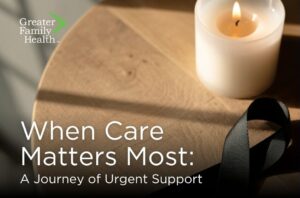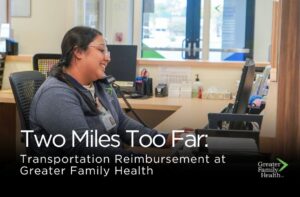Greater Family Health’s Medication Assisted Treatment Program is excited to announce the hiring of a Peer Recovery Support Specialist, Susan Newberry. As a Peer Support Worker, Susan can be the patient’s voice in a system which can be difficult to navigate during any stage of one’s journey. Her role is to meet with patients enrolled in the MAT Program and provide additional support in areas of need.
Susan can also provide recovery coaching and will meet with each MAT patient individually to develop their recovery plan, outline social supports and identify how to manage inevitable triggers and urges to use. She is available to meet with patients at Greater Family Health’s Greater Family Health in Sycamore and Greater Family Health in Elgin, although any Greater Family Health MAT patients can meet with Susan regardless of the location where they receive MAT services within Greater Family Health. As a reminder, all patients in Greater Family Health’s MAT Program can schedule follow up appointments at any of our four Health Centers providing this service.




